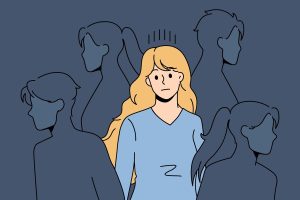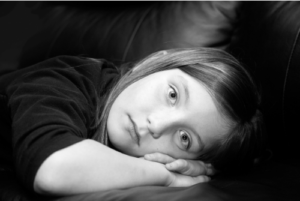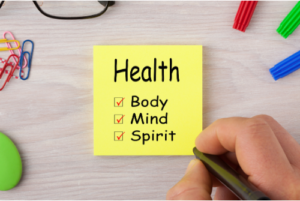
Here’s The Truth About Feeling Lonely
The world is more connected than ever. Think about this, a mere click connects us to the other side of the globe. Social media buzzes

The world is more connected than ever. Think about this, a mere click connects us to the other side of the globe. Social media buzzes

What Is Sadness? Sadness is a basic human emotion. It’s a natural response to situations that cause emotional, psychological or physical pain. You can feel

Depression can affect children as well.
Many of us would feel that this is just a child, how can he/she be depressed? Perhaps it’s just a mood swing or a phase. Yes, that happens too. Not every child who seems sad or introverted is depressed. But if you notice a significant change in your child’s behavior, which he just doesn’t seem to be ‘getting over’ and is adversely impacting his school work and/or relationships, perhaps it’s time to pay attention.

Depression is often triggered by untoward traumatic events that one is unable to deal with emotionally. These events may be sudden and severe like accidents, gradual and continuous like terminal illness or even ongoing and day-to-day like conflicted relationships. At any given time, many people are affected by the particular trauma. However, only a few end up suffering from depression. What makes some people more likely than others to suffer from depression?

The term “depression” is becoming increasingly commonplace today. Often people believe they have gone through depression but today we want to question whether it is really so! The number of people suffering from depression is definitely on the rise, but while it is as widespread as to be the common cold of mental disorders, it still isn’t as common as common cold!

We specialize in combining psychotherapy with deep wellness practices like mindfulness and meditation and creating a customized mental health plan for individuals and organisations.
We specialize in combining psychotherapy with deep wellness practices like mindfulness and meditation and creating a customized mental health plan for individuals and organisations.

A young woman from another country moved with her family to live for one year in a town near the monastery. When, in the course of the year she discovered the monastery, she would periodically visit to have discussions with the Abbess. The Abbess introduced her to meditation, which became very meaningful for the young woman.
When the family’s year-long stay was drawing to an end, the young woman asked the Abbess, “In my country there is no Buddhism and no one has even heard about meditation. How can I continue to learn and deepen the practice you have started me on?”
The Abbess said, “When you return home ask far and wide for who, among the wise people, is recognized as having the greatest ability to listen. Ask that person to instruct you in the art of listening. What you learn about listening from such a person will teach you how to further your meditation practice.
― Gil Fronsdal, A Monastery Within: Tales from the Buddhist Path